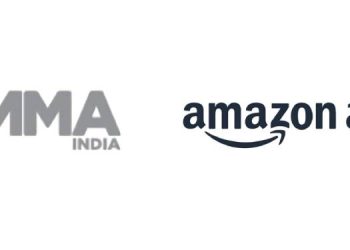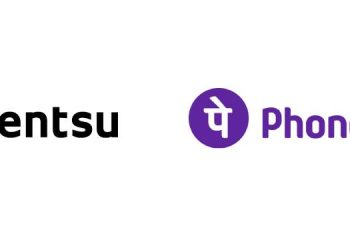
Mumbai: When the Walt Disney company acquired UTV and entered the Indian Media and Entertainment market. It had tough time implementing the compliances of international laws like Foreign Corruption Practice Act (FCPA) Anti Bribery and Anti Corruption Act (ABAC) in the organisational functioning. It took so-many sessions for them to educate their employees to understand the importance of compliances by spending huge money. However, still the Companies international leaders were not satisfied with the level of awareness. So they wanted to force it through a Independent watch dog by appointing a Country General Council who was equipped with ultimate powers to intervene and cross check at any point of functioning of a vertical.
Obviously, this is a process which will consume lot of money and even the top rates Indian Media and Entertainment companies don’t have monies to implement such systems in their organisation. Moreover, in recent times many small or start-up organisations started budding over night due to the programming opportunities being given to Individual operators rather than big registered banners that resulted in many fly by night operators, their survival is purely based on the performance of the program that they produce.
If a program produced by such fly by night guys fails and gets winded up in a short period, then he will end up defaulting his talents, Vendors and the government by failing to file the tax returns and end up skipping to pay service tax and TDS too. In Indian M& E industry there are hundreds of such budding organisations that collapse and go hiding over night from the rented space from where they operate.
Even the Income Tax and Service Tax authorities have the highest level of defaulters from M&E Industry only. The following survey from Ernst & Young titled “M&E Fraud Survey 2014” witnessed the above facts to be true and states that an explosive rise in fraud-related cases over the last two years, say 56 per cent of respondents surveyed by Ernst & Young for its ‘M&E Fraud Survey 2014′.
The survey revealed an astonishing facts that one out of six respondents reported increased cases of fraud in their organisations. According to 83 per cent of respondents, kickbacks given for approval of talent-related and acquisition costs, carriage fees, Intellectual Property Rights (IPR) and satellite rights constitutes another challenge faced by the industry. The effects of these hidden costs could see a far-reaching adverse impact on the industry as well as the economy as a whole.
The survey features insights of key decision-makers in the Indian M&E space companies with domestic operations as well as Indian and global multinational corporations. It also reveals content distribution and TV/film content production, finance and advertisement sales functions as particularly vulnerable areas. The survey also highlights a high risk of facilitation and unethical payment in segments which mandate government approval.
E&Y partner, Fraud Investigation and Dispute Services Mukul Shrivastava said, “The war against fraud, bribery and corruption risks have leapfrogged and slices across sectors, geographies and economic conditions. Being on an upward trajectory, the Indian M&E sector is increasingly victimised by the growing challenges around governance breakdowns and unethical practices. This has led to extensive losses (monetary and reputational), sub-par performance and arrested development. In light of the changing industry dynamics, organisations will have to improve vigilance, boost internal controls and raise compliance benchmarks for sustainable growth.”
E&Y India M&E sector leader Farokh Balsara said, “As companies in the M&E sector increase in size and move from unorganised to organised operations, the need for proactive fraud prevention has increased. The adoption of an ethical business conduct and sound governance policies will play a crucial role in determining its true success.”
Securing data and enhancing privacy standards
Today, most organisations are leveraging the benefits of technology and providing immense flexibility to users. The downside is an augmented risk of confidential and sensitive information being compromised. Insider threats are more likely to have a negative impact on the business as compared to external ones.
The survey states that 76 per cent of the respondents have easy access to personal emails and networking websites. While 50 per cent say that they have undertaken multiple checks to secure their IT networks, only a minority (26 per cent) have instituted penalties in case of information leakage by employees.
Health checks to thwart bribery and corruption are inadequate: Organisational principles and good practices always tend to trickle down from the top. The survey indicates communication from the corner office to spread awareness and conduct training remains insufficient.
67 per cent of respondents say that their organisations did not deliver training on anti-bribery and anti-corruption (ABAC) policy to their employees and vendors. With threats related to third parties (such as dubious or non-existent vendors) on an uptick, alarmingly 59 per cent were unaware that organisations are jointly responsible for the unethical actions of the former. Only 13 per cent indicate their companies conduct audits of third parties.
Chalking a roadmap for compliance Organisations’
internal audit departments are increasingly seen as a corporate wall against risks related to fraud. Supplementing them are external specialists or advisors that bring in added competencies to implement an effective compliance management system. However, the survey results suggest that only 24 per cent have regular reviews conducted by external law firms or specialist consultants.
57 per cent are yet to set up a whistle-blowing mechanism to protect the company’s interests and 41 per cent have minimal knowledge about anti-corruption laws such as Foreign Corrupt Practices Act, UK Bribery Act and local regulations.
Regular training, awareness programmes, interactive sessions with case studies and scenarios are expected to be strategic enablers in institutionalising a robust fraud risk management programme.
With the kind of dwindling revenues it will be very difficult to expect the M&E to get in to organised way of functioning and in the regional markets the cases are even worse.

















